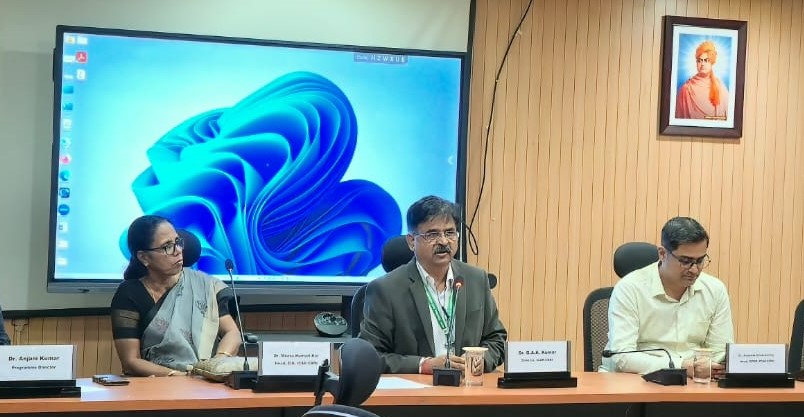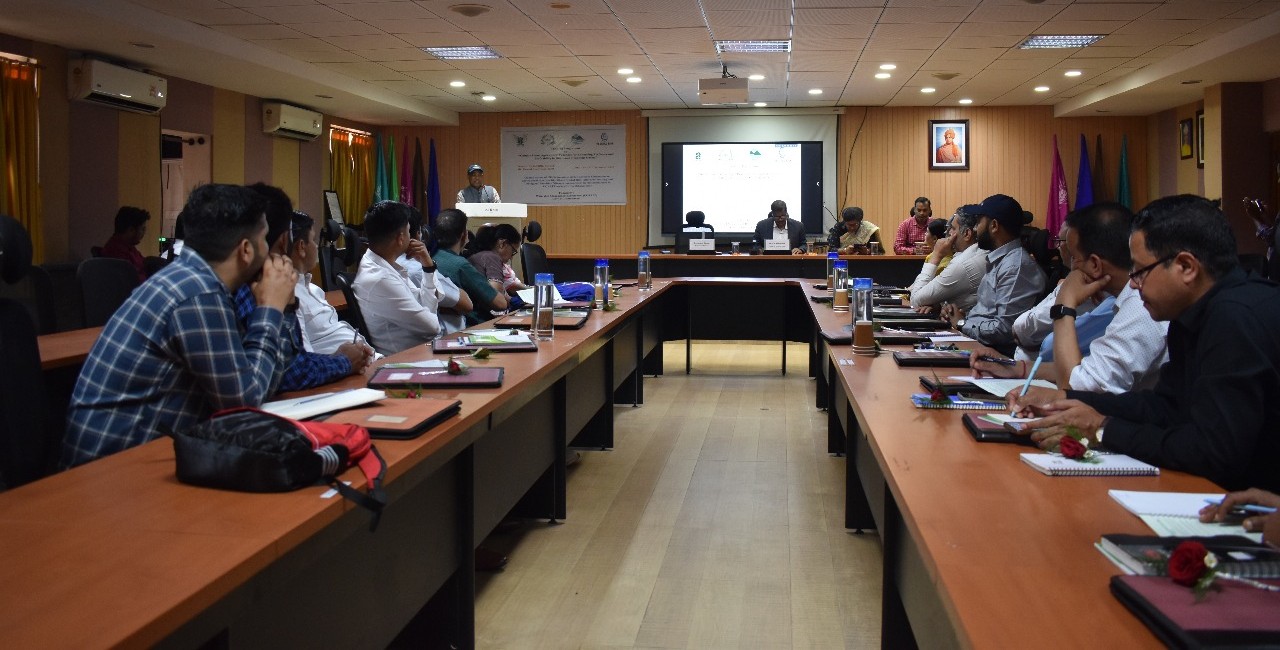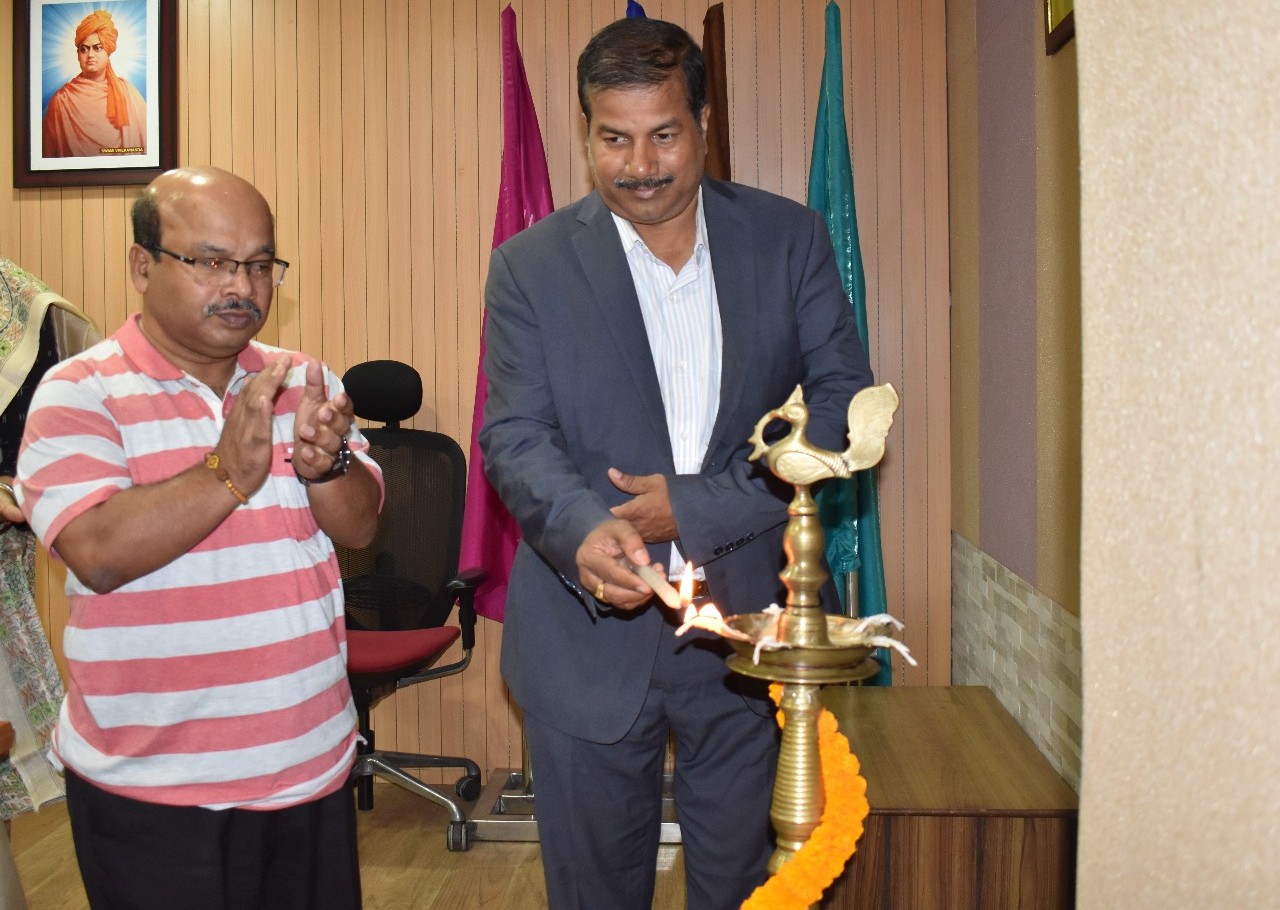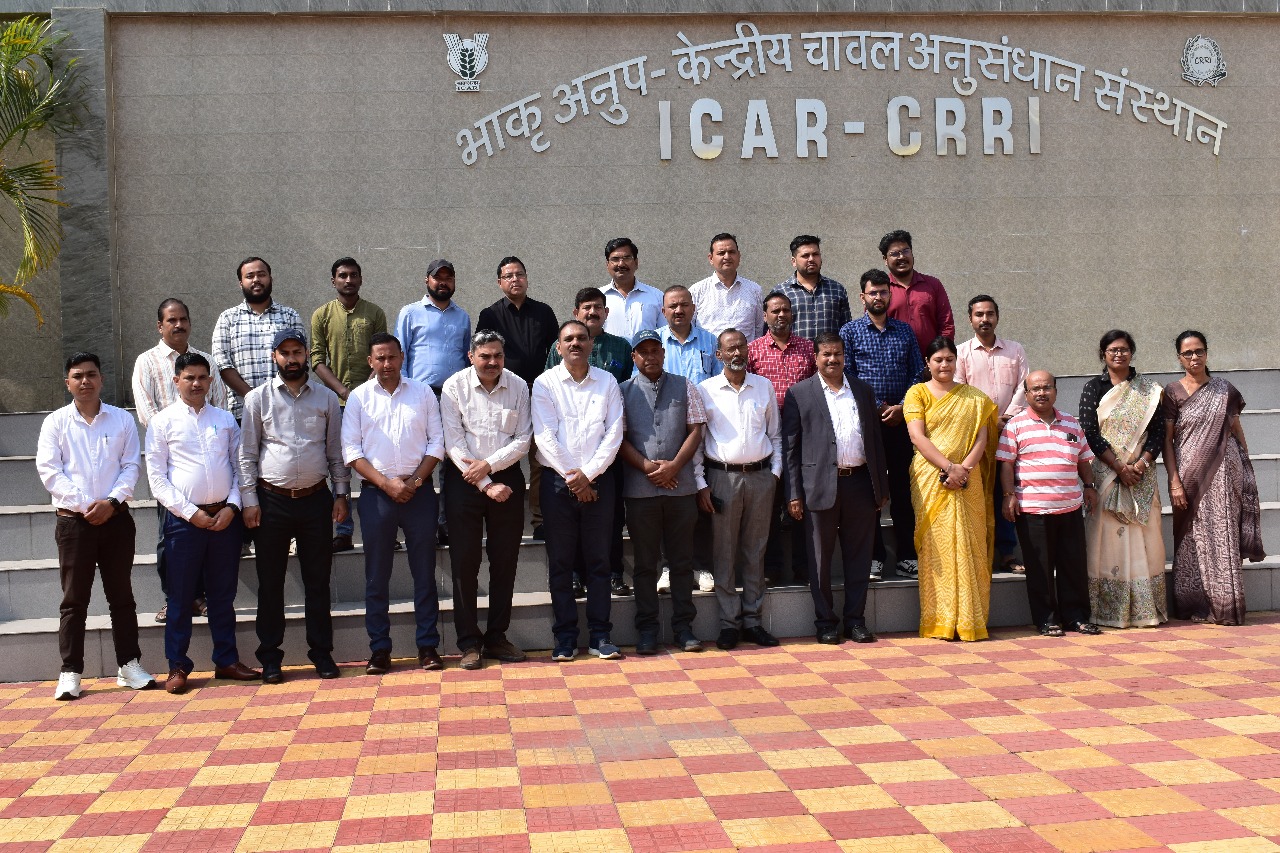चावल आधारित फसल प्रणाली को मजबूत करने के लिए सीआरआरआई में जलवायु-स्मार्ट कृषि पद्धतियों पर प्रशिक्षण आयोजित ![]()
भाकृअनुप–केंद्रीय चावल अनुसंधान संस्थान (सीआरआरआई), कटक ने वाटरशेड मैनेजमेंट निदेशालय, देहरादून के सहयोग से 18–21 नवंबर 2025 के दौरान “चावल आधारित फसल प्रणालियों में अनूकूलन और लाभप्रदता बढ़ाने हेतु जलवायु-स्मार्ट कृषि पद्धतियाँ” विषय पर चार दिवसीय प्रशिक्षण कार्यक्रम का आयोजन किया। यह कार्यक्रम विश्व बैंक–वित्तपोषित उत्तराखंड क्लाइमेट रेजिलिएंट रेनफेड फार्मिंग प्रोजेक्ट (यूसीआरआरएफपी) के अंतर्गत संचालित किया गया। प्रशिक्षण का उद्घाटन भाकृअनुपआर–सीआरआरआई, कटक के फसल सुरक्षा के प्रभागाध्यक्ष डॉ. एस. डी. महापात्र द्वारा किया गया। अपने उद्घाटन भाषण में डॉ. महापात्र ने चावल आधारित पारिस्थितिक तंत्र में जलवायु परिवर्तन से उत्पन्न चुनौतियों का प्रभावी ढंग से सामना करते हुए सतत उत्पादन सुनिश्चित करने के लिए जलवायु-स्मार्ट उपायों की बढ़ती आवश्यकता पर प्रकाश डाला।
डॉ. अंजनी कुमार, कार्यक्रम निदेशक ने प्रतिभागियों को यूसीआरआरएफपी परियोजना के प्रमुख उद्देश्यों से अवगत कराया तथा जलवायु-प्रतिरोधी कृषि प्रौद्योगिकियों और पद्धतियों को अपनाने के महत्व पर बल दिया। प्रशिक्षण के प्रतिभागियों में यूसीआरआरएफपी परियोजना से जुड़े अनेक हितधारक तथा उत्तराखंड सरकार के वरिष्ठ अधिकारी शामिल थे। इस प्रशिक्षण का उद्देश्य बदलती जलवायु परिस्थितियों में चावल-आधारित फसल प्रणालियों की कमजोरियों के प्रति जागरूकता बढ़ाना और प्रतिभागियों को जलवायु-स्मार्ट कृषि (सीएसए) उपायों से परिचित कराना था। सत्रों के दौरान चावल क्षेत्रों से ग्रीनहाउस गैस उत्सर्जन को कम करने हेतु विकसित नवीन प्रौद्योगिकियों एवं उन्नत प्रबंधन पद्धतियों का भी प्रदर्शन किया गया।
समापन सत्र की अध्यक्षता भाकृअनुप–सीआरआरआई के निदेशक डॉ. जी ए के कुमार ने की, जिसमें विभिन्न प्रभागाध्यक्ष भी उपस्थित थे। निदेशक ने किसान उत्पादक संगठनों (एफपीओ) को शामिल करते हुए वाटरशेड आधारित बिजनेस योजना विकसित करने के महत्व पर जोर दिया। प्रतिभागियों ने अपने-अपने क्षेत्रों में बारी-बारी से खेत को गीला करने एवं सुखाने, सीधी बुआई चावल (डीएसआर) तथा सटीक पोषक प्रबंधन जैसी जलवायु-स्मार्ट तकनीकों को बढ़ावा देने की प्रतिबद्धता व्यक्त की। यह कार्यक्रम उत्तराखंड में जलवायु-स्मार्ट कृषि को बढ़ावा देने, किसानों की लचीलापन क्षमता को मजबूत करने, चावल उत्पादन के कार्बन पदचिह्न को कम करने तथा व्यापक जलवायु शमन और अनुकूलन प्रयासों का समर्थन करने की दिशा में एक महत्वपूर्ण कदम सिद्ध हुआ।
 |
 |
 |
 |
